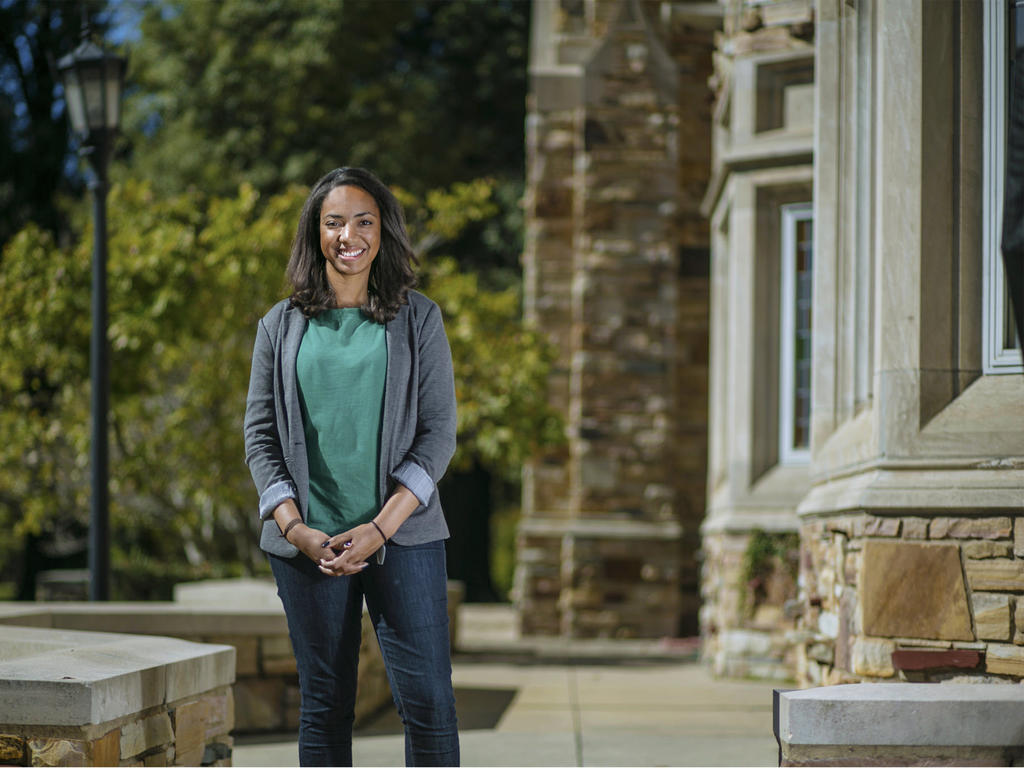Hometown: Dallas, Texas
Major: Biology
Minor: Chinese Studies
Academic interests: I love studying languages (recently made it to my fourth) and biology—mainly epidemiology and mycology. I am also interested in sociology and public health.
Extracurricular activities: Tuesday Fellowship, Residence Life RA, Math department tutoring, Biology department tutoring, volunteering at local hospitals
Tell the story of how you got to Rhodes College.
I found out about Rhodes from the mass of brochures I received in the mail, and it became my final application and college visit. Rhodes was quite different from the larger D1 schools I was looking at, but I was at a point that I wanted my college experience to be ruled by academics and not rowing. Rhodes’ honor code, religious background, commitment to community service, relationship with local hospitals, and medical school acceptance rate all drew me in, and the people I met on my visit perfected the package. It didn’t hurt that I knew there would be hundreds of Texans already here.
How have you changed since beginning your studies at Rhodes?
The biggest change in my life since beginning Rhodes has been the growth in my faith. When I came to school, I considered God to be a part of my life—one of the slices in my pie chart of activities—but I realized early on that He was not the core. Now, I seek to make Him the center of all of my thoughts and activities, and do things for His glory and not my own. Understanding the mercy, grace, and love Christ first showed me makes me excited to pass it on to those around me in service. Struggles are not absent from my life, but the confidence I have that God withholds no good thing from those who love Him encourages me despite them.
Tell us a little about your internship in Brazil last summer.
I went to Brazil through the National Institute of Health’s MHIRT program (Minority Health and Health Disparity International Research Training). The program sends people from underserved populations abroad to perform biomedical research or qualitative research that will aid in lessening or eliminating healthcare disparities.
I was sent to Florianópolis in the state of Santa Catarina, Brazil, for 10 weeks to work in a neuropharmacology lab under a mentor. My research was to understand more about fear conditioning/fear learning. This is the idea of training something or someone to perceive an otherwise neutral stimulus as aversive or harmful. In the broader context, it was about understanding how these bad memories are trained in order to help in trying to prevent or reverse them for people suffering with things like PTSD. I will be presenting my research at the Xavier University of Louisiana College of Pharmacy’s Eighth Health Disparities Conference in March.
One of the best parts of my internship abroad was having time to integrate myself into the culture of the community, and being in Brazil during the World Cup!
How did Brazil impact your future plans?
Initially, I was hoping that researching in Brazil would help clarify whether I wanted to pursue a career in a lab, or as a clinical physician. In my last three weeks though, I ended up falling on a hike and injuring my ankle pretty badly. Going through the Brazilian public healthcare system, I only paid for my medicine and my boot—my cast, emergency room fees, and x-rays were all covered by taxes! This further exposed me to the shortfalls of American healthcare as it stands: It’s only good when you can afford it. After returning to the U.S. after my gap year, I now look forward to applying for dual MD/MPH programs and focusing on serving communities with poor healthcare access.
What are your plans for next year?
I am currently in the application process for two gap-year programs. The first program is to work as an English teacher at a university in China for one year, and the other is to spend two years in either Rio de Janeiro, Brazil, or Berlin, Germany, as an anti-trafficking worker. Each program is long-term mission based, and during that time I also hope to volunteer in the country’s public health facilities so that I may return with a better understanding of how to help the American public through health care reformation.
